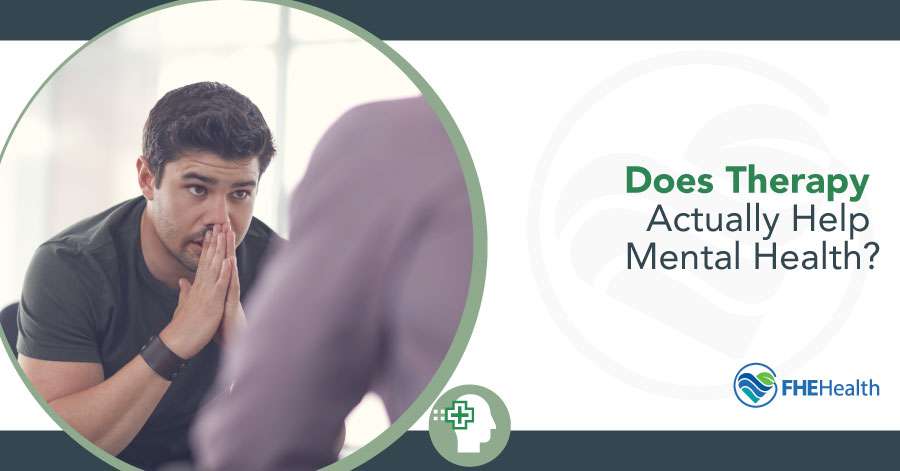Armed with an understanding of psychological principles that aid in better understanding individuals, psychologists can apply these clinical theories to help solve some of society’s most challenging real-world problems through applied psychology. This everyday psychology application can address problems across multiple facets of the human experience, including in the workplace or at school, managing health challenges and applications in law.
Here are nine issues in which psychologists have made an impact through research and application.
Although the majority of American employees receive sick pay and job protection, 28% of the working population risks losing their pay – or even their jobs – when they miss work because of their own or a family member’s illness. Dr. Patricia Stoddard-Dare and her team examined the impact having, or not having, those benefits had on employees. They found that even when they accounted for 20 different factors that could influence psychological distress (like gender, age, income, health status, alcohol use and sleep), employees without paid sick leave suffered much more frequently from heightened psychological distress.
Stoddard-Dare’s work links distress to lack of benefits, a critical connection as legal battles at the state level have begun to regulate leave policies, with 15 states blocking paid sick leave and another 39 mandating employers provide paid sick leave.
While educators have long agreed that the composition of a classroom can impact learning, it wasn’t until Ming Ming Chiu, Bonnie Chow and Sung Wook Joh’s 2017 study of fourth graders in 40 countries that reader test scores were linked to classmate characteristics and distribution.
The study found that classmates scored higher on reading tests when their classmates from advantaged families (measured by higher education, income or employment) had better attitudes toward reading or earned higher test scores, thought to be a result of better exposure to educational materials and experiences. As a result, the study advocated for mixed students with different family backgrounds and attitudes toward reading improved overall test scores. The classroom composition allowed those with higher scores to provide peer learning, both encouraging disadvantaged students and reinforcing the knowledge of the advantaged students.
A recent study by Edwards, Sessarego and Schmidt highlighted a need for additional education on college campuses for Title IX regulations and sexual assault. By posing as a student conducting a class project, the researchers found just 1 in 3 institutions answered calls and were willing to talk to the caller – a concerning statistic given the likelihood that victims will reach out by phone for help in real situations. The research also exposed a general lack of protocol comprehension, as just 4 in 5 campus security respondents knew their Title IX coordinator.
In addition to exposing these significant knowledge gaps, the researchers did note that the colleges and universities that did respond were doing so well – providing correct information and refuting fictions, such as the myth that women frequently fabricate sexual assault. These findings suggest broader change is possible and can help to mobilize efforts at both the local and national level to improve prevention and response to sexual assault.
After the FBI incorrectly identified and detained Oregon lawyer Brandon Mayfield for the Madrid Train bombings, an official investigation was launched to examine the FBI’s approach to the case, with one examiner admitting that Mayfield’s characteristics may have predisposed FBI agents to immediately accept the match without question. (Mayfield was a recent Islam convert, married to an Egyptian and had represented a convicted terrorist as an attorney).
Smalarz and a team of researchers examined this bias in a 2016 research study, where they found that for many crimes, people hold shared beliefs about the profile of the criminals who commit them. The researchers highlighted that this type of profiling is different from an assumption that “all white men are bad.” Instead, criminal stereotyping influences people to believe, for example, that most child molesters are white men, which can then influence forensic interpretation when results match the stereotyped profile.
The research has bolstered a push to reform the forensic sciences, either by removing unnecessary, potentially biasing information from samples or by including filler samples with people of the same stereotypical profile known not to have committed the crime.
Although posttraumatic stress disorder (PTSD) isn’t limited to any single population, it occurs at significantly higher rates in veterans. In many cases, those who suffer from PTSD attempt to escape feelings of stress and overwhelm with drugs or alcohol, spurring a substance use disorder in an estimated 20% of PTSD cases, according to the National Center for PTSD.
Florida Tech professor Natalie Fala is working to combat that in partnership with the Department of Veterans Affairs as a PTSD/substance use disorder psychologist, where psychologists are striving to treat both issues at the same time, as opposed to previous approaches that worked to address substance abuse and then PTSD. By addressing the trauma through psychotherapy instead of trying to manage the symptoms or avoid it altogether, Fala says people are better able to move forward, enjoy their current life more, and find balance.
While treating the comorbid disorders to PTSD and substance abuse is a step in the right direction, Fala says more research in the realm of substance abuse is also important.
Role in the Opioid Epidemic
Medication is a vital tool in many treatment plans for patients of psychologists; however, in light of the opioid abuse crisis, psychologists must also play a key role in understanding the symptoms of a person developing a dependence on opioids, as well as understanding and presenting treatment options and support for patients who need help.
Psychologists can also partner with prescribing physicians to assess risk factors for opioid addiction and aid in the design of contingency management programs aimed at rewarding patients for staying off the drugs, a realm which Nancy Petry, PhD, says often needs better support in administering correctly.
As astronauts strive to reach Mars, psychologists are examining what it means for humans to be confined together in such small spaces for extended periods of time. While little research has been done to date, Lauren Blackwell Landon, PhD, lead author of Teamwork and Collaboration in Long-Duration Space Missions: Going to Extremes, applied psychology best practices are informing recommendations for NASA’s approach to assembling teams for extended space missions.
With an anticipated 45-minute delay in communications leaving room for little support from Mission Control, a mission lasting 2-3 years, and compact living quarters reminiscent of an RV, astronauts joining missions headed to Mars must be adept at building trust, acting autonomously, mitigating conflict and establishing rapport, according to Landon and her team.
As the #MeToo movement gained traction in 2017, the workforce faced increased scrutiny for workplace sexual harassment, spurring several high-profile lawsuits, terminations and resignations for conduct. Despite the ongoing national dialogue addressing workplace behavior, in a recent survey by the American Psychological Association (APA), just 32% of working Americans reported their employer had created new measures to prevent and address sexual harassment in the workplace. Instead, many employers simply reminded their employees of existing policy.
The APA study, Workplace Sexual Harassment: Are Employers Actually Responding? spotlights the largely ineffective approach the workplace is currently taking, says David W. Ballard, PsyD, MBA, director of APA’s Center for Organizational Excellence. But the research also found some promising correlations that could represent part of a solution, including links between increased reporting and more women in senior leadership, and between superior employee and organizational outcomes in businesses that boosted efforts to prevent and address workplace sexual harassment.
With rising exposure to trauma in school-aged Americans, psychologists are examining the interventions used to support the students, who most often receive mental healthcare from school administrators, counselors and teachers.
The APA’s new book, Creating Healing School Communities: School-Based Interventions for Students Exposed to Trauma, offers several models to support administrators and teachers working with students exposed to trauma. In their research, the authors found a gap between student need and services provided, reporting that just 25% of children with mental health needs receive services, and an estimated 70-80% of those services are offered through schools.
The authors recommend a multi-layered, prevention-based approach that incorporates the whole school first, then provides additional, targeted care for at-risk students, and further support for students with the greatest need.
Are You Interested In Applying Psychological Principles to Real-World Issues?
While society benefits from the depth of understanding applied psychology offers, practicing professionals often find their work rewarding and beneficial as well. “I enjoy doing applied psychology and work that matter’s in people’s lives,” said Dr. Lisa Steelman, Associate Professor and Director of the Industrial/Organizational Psychology program at Florida Tech.
With applied psychology, you can leverage your professional expertise to find solutions, challenge norms and advocate for change in the areas that are critical to you. Applied psychology can help answer questions that impact people, improve systems and technology, and influence forensics and law.
Interested in learning more about Florida Tech’s applied psychology programs?
Click here!
Do you think that psychology is only for students, therapists, and academics? If so, then you believe revise because psychology is both a theoretical and practical aspect that can use in many ways. In this blog, we discuss some important uses of psychology that can change your life in a better way.
Psychology is about the study of the human mind and behavior in a scientific way. It studies human nature and its influence on their behavior. It is the application of knowledge to understand health issues, relationships, employment, education, etc. Psychology will help you while making decisions, stress, and time management. It is a subject that includes humanities and natural sciences. In everyday life, Psychology is constructive.
Here are five ways that psychology applies to everyday life:
- Improving Communication Skills
Through Psychology, it is easy to understand how people think and behave and communicate with others. With the help of psychology, people can realize gratitude and actions that will make communication more straightforward.
Enhance Self–Confidence
An individual can acquire self–confidence by learning and knowing more about yourself and your personality. It helps the person to identify their strengths and weakness and also enables them to rebuild.
Enriching Career
Psychology helps people to comprehend others and build relationships and friendships. Those people who have an idea of psychology would have the chance to establish their company with coworkers better.
Building Relationships
As we know, psychology is studying about human mind and behavior. Psychology plays a vital role in understanding human actions, and it fosters their relationships.
Insight about people’s behavior
Psychology tells about all features of human behavior. It tells about routine human nature but also finds differences in their behavior. However, clinical Psychology helps to gain insight into people’s behavior.
Importance of Psychology in Everyday Life:
Two aspects of psychology are essential:
- Application Aspects:
Psychology engages theoretical principles and laws for monitoring, changing human behavior, and controlling through practical research—and applied psychology structures criteria and standards that differentiate normal behaviors from abnormal behavior.
Psychology is very crucial in the life of different individuals and communities. At the beginning of psychological studies, psychology is concerned with treatment and understanding of human behavior. It tries to bring the necessary change and alterations to this behavior. Psychology will use in different fields of education like books, curricula, and other teaching aids.
- Psychology can manage individual behaviors and assume their occurrence.
- It will study various kinds of human and animal behavior.
- It helps streamline individuals their different lifestyles.
- It can study the rules that affect psychological phenomena, translate them, make assumptions, and try to change them if they require any change.
- It will help humans to build relationships that depend on mutual respect between different groups and people.
- It provides support to individuals in finding the ways and types of thinking.
- Theoretical Aspect:
Psychology examines in its theoretical aspects of psychological phenomena and behavioral patterns that show people’s external behavioral reactions to approach general principles and rules. It controls the presence of a specific event, mechanism, and how it looks.
How can Psychology help you Improve Your Lifestyle?
Psychology is mainly of great importance as it relates to the study of mental processes and behavior simultaneously. It is used to understand better and support an individual with psychological disorders and mental illness. Psychology is also applicable in our daily lives and also in many aspects of our lives.
Improve your Communication Skills
Communication includes many more than you talk or write. The studies show that non-verbal signs are a huge part of our communication and communicate your message efficiently. Some are:
- Learn how to be expertise in the art of non – verbal communication.
- Start to observe non – verbal signs in others.
- Use excellent eye contact
- Learn how to utilize a soft tone to communicate your message effectively.
Enhance your memory power
Remembering is an essential element in human life; good memory treasure should be preserved and developed. Any memory imbalance confuses the route of life, and forgetfulness frequently becomes inherent. Researching how to shape new memories and how and why we’ve got forgotten has caused some of the effects that may apply directly to your daily life.
Our brains lose the ability to remember specific places and matters over time. Just as we do muscle-strengthening exercises, we have to enhance our memory by doing some exercise additionally.
We have to additionally pay attention to mental health and comply with the advice which could save you diseases together with Alzheimer’s or dementia.
Stay Motivated and Stick with Your Goals
If your goal is to lose weight, stop smoking, or research a brand new language. Educational psychology gives tips and techniques for buying motivation to boost motivation levels while you approach a task.
You can use a number of the following tips from studies in cognitive and academic psychology: -
- Introduce new items to hold your interest high.
- Learn new matters based on your current knowledge.
- Set clean desires which might be immediately related to the task.
- Reward yourself for a good job.
Make More Accurate Decisions
Cognitive psychology studies have provided a wealth of data about decision-making abilities. By making use of those techniques in your life, you may learn to make wiser choices. Subsequent studies in this area, known as behavioral economics, have yielded a few key findings that you may use to make more intelligent options for money management. The subsequent time you want to make a big decision, try and use the “six thinking hats” method by searching on the attitude from multiple perspectives, along with rational, emotional, intuitive, creative, positive, and opposing views.
Conclusion
Psychology is essential science that one can study at all. Psychology is crucial in all areas of life. One of the maximum essential capabilities of psychology is that it is possible to increase a conscious and distinctive generation.
Psychology allows people’s behavior and enhances the labor market, and it is essential to have a psychologist in any clinical team in hospitals or health care centers. Likewise, it is crucial to have a psychologist in the workplace who will maintain a balanced and healthy work environment.
In addition, psychology also consists of the psychology of boom and development, observing crime and its products and others. Remember that you are making the proper choice if you are searching to keep psychology as it will open up impossible horizons in the future.




